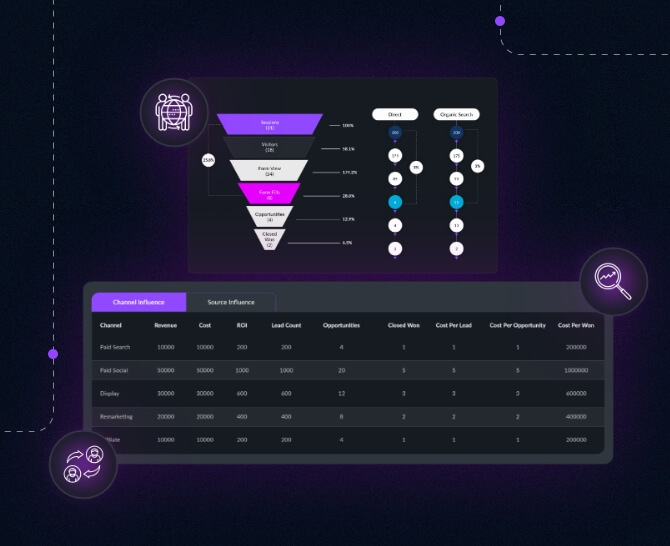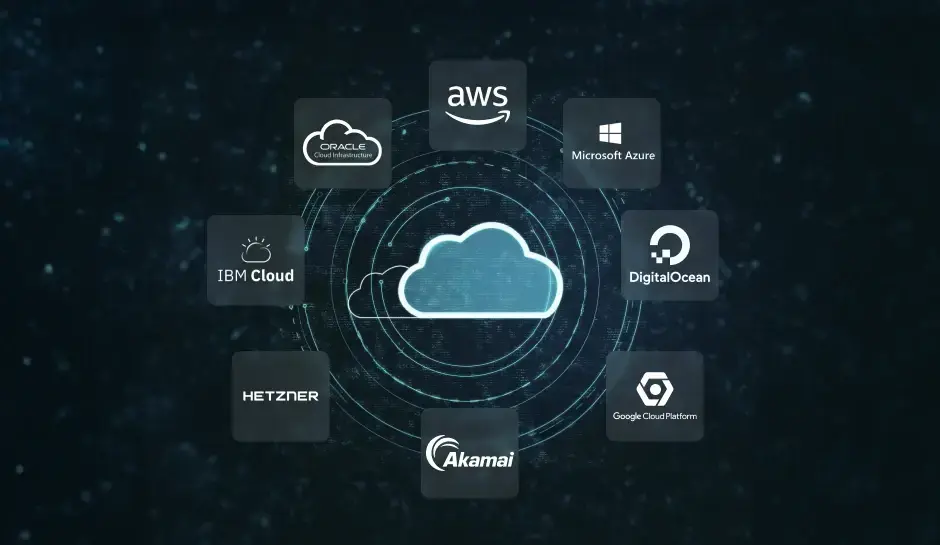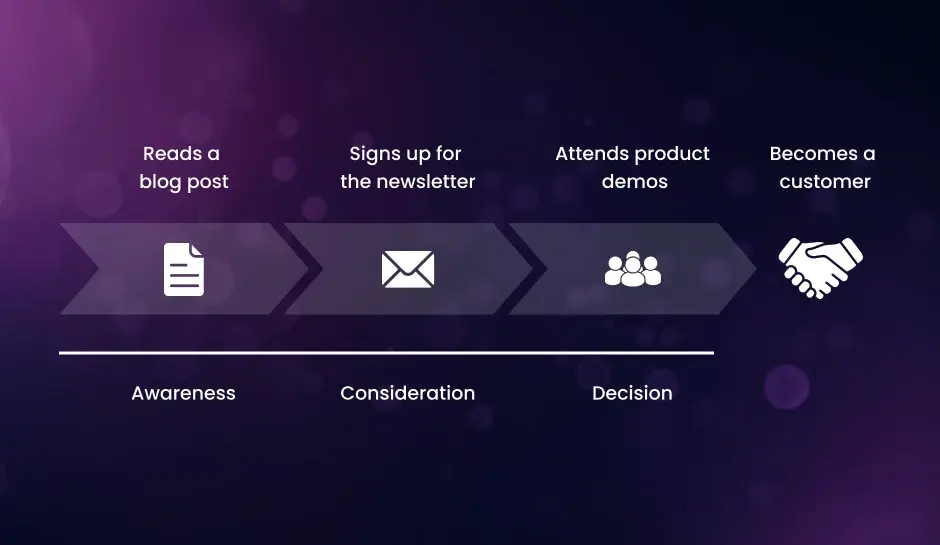
Top 15 Challenges That CMOs Might Face in 2024
As 2023 draws near and the global slowdown shows no signs of abating, CMOs and their marketing teams must stand prepared. In this blog post, we take a look at 5 challenges that CMOs might face in 2023.
The role of the CMO has changed a lot. With the proliferation of channels, devices, platforms, and a fear of recession looming, it’s difficult for a CMO to prove marketing’s value without having access to unified and holistic data, a pool of talent, connecting with customers, and standing out in a crowded marketing landscape. There’s too much data to make sense of it. All of this, together, can give rise to a host of unique Marketing Analytics challenges that CMOs must overcome. Here are the 5 challenges that CMOs might face in 2023:
15 Challenges That CMOs Might Face
- Uncertain Future
- Retaining Talent
- Standing Out in a Crowded Digital Marketing Landscape
- Connecting with Customers
- Demonstrating Successful ROI to Justify Their Budget
- Increasing Competition
- Rapid Technological Advancements
- Data-Driven Decision Making
- Ensuring Brand Consistency
- Budget Constraints
- Increasing Competition
- Rapid Technological Advancements
- Data-Driven Decision Making
- Ensuring Brand Consistency
- Budget Constraints
The future right now seems uncertain, and that means becoming wiser with your marketing spend. While testing and learning is the norm in marketing, right now is the time to stick to tried and tested strategies. And this obviously does not mean holding off on marketing investments.
With the abundance of Marketing data and marketing channels, there can be several distractions that could drain your coffers, so it is important to organize your data and stick to channels which will work within your budget and for your audience.
If your target audience is not likely to read their email, don’t invest in it just because everyone else is. In the same way, if paid advertisements haven’t yet given you the ROI expected, it’s best to hold off till the seas become calm once again.
In the wake of the Great Resignation, one of the biggest challenges CMOs face is not external but internal. Labor shortages have impacted nearly every industry and new talent that fits your company culture and expectations can be hard to find. This is why it becomes even more important to retain the talent you do have. Investing in new methods of working can increase productivity and make employees happier.
Everyone has gone digital after the pandemic, making most Marketing platforms rather crowded. To stand out, you need to be unique and noticeable. The best way to do that is to add a little personality. The image you want your brand to embody would depend on the audience that you hope to resonate with.
In a crowded digital landscape, businesses that can forge a genuine connection with people stand to gain. So it is crucial to know and understand your target audience.
Building lasting relationships with customers is essential. Managing these relationships is even more crucial. Afterall, existing customers bring in the lion’s share of revenue. So it is important to have a customer marketing strategy in place.
With news of a global slowdown everywhere, now is the time to forge strong bonds with customers and understand what they are looking for. Granted that most would be looking to downsize or stop any business dealings till things settle down, but with a strong relationship, most will choose to come back to their preferred partners.
Multiple marketing channels and siloed systems means finding actionable insights is tough without having access to specialized talent. And without actionable insights, how do CMOs demonstrate successful ROI?
This is where investing in marketing analytics tools–that can unify data sources to measure marketing effectiveness and activate marketing intelligence–is of immense help. As marketing budgets come under intense scrutiny, CMOs will have to demonstrate successful ROI to justify their budgets.
One of the major challenges for CMOs is dealing with the ever-increasing competition. As businesses across industries strive to capture market share and gain a competitive edge, CMOs must find innovative ways to differentiate their company’s products or services from the rest. This involves extensive market research, understanding consumer behaviors, and developing unique marketing strategies that resonate with the target audience.
Another significant challenge faced by CMOs is keeping pace with rapid technological advancements. With the advent of new digital channels, social media platforms, and marketing automation tools, CMOs need to constantly adapt their marketing strategies to leverage the latest technologies. This requires continuous learning, staying updated on industry trends and best practices, as well as fostering a culture of innovation within the marketing team.
In today’s data-driven world, CMOs are increasingly relying on analytics and data to make informed decisions. However, handling and analyzing vast amounts of data can be overwhelming. CMOs face the challenge of not only collecting and interpreting data but also translating it into actionable insights that drive marketing initiatives. This requires the ability to extract meaningful patterns and trends from complex data sets, and effectively communicate those insights to the team.
Maintaining brand consistency across various marketing channels and touchpoints is crucial for building a strong brand identity. CMOs face the challenge of ensuring that the brand message, visual elements, and tone of voice remain consistent across offline and online platforms. This involves effective collaboration with different stakeholders, including marketing teams, creative agencies, and sales representatives.
Like any other department, marketing budgets are often constrained. CMOs need to find creative ways to maximize their marketing efforts within limited resources. This requires careful budget planning, prioritizing marketing initiatives, and finding cost-effective strategies to reach the target audience. CMOs must constantly evaluate the return on investment (ROI) of different marketing activities and make adjustments accordingly.
While these challenges may seem daunting, they also present opportunities for CMOs to demonstrate their leadership skills, adaptability, and strategic thinking. By tackling these obstacles head-on, CMOs can drive growth, enhance brand visibility, and contribute to the overall success of their organizations.
One of the major challenges for CMOs is dealing with the ever-increasing competition. As businesses across industries strive to capture market share and gain a competitive edge, CMOs must find innovative ways to differentiate their company’s products or services from the rest. This involves extensive market research, understanding consumer behaviors, and developing unique marketing strategies that resonate with the target audience.
Another significant challenge faced by CMOs is keeping pace with rapid technological advancements. With the advent of new digital channels, social media platforms, and marketing automation tools, CMOs need to constantly adapt their marketing strategies to leverage the latest technologies. This requires continuous learning, staying updated on industry trends and best practices, as well as fostering a culture of innovation within the marketing team.
In today’s data-driven world, CMOs are increasingly relying on analytics and data to make informed decisions. However, handling and analyzing vast amounts of data can be overwhelming. CMOs face the challenge of not only collecting and interpreting data but also translating it into actionable insights that drive marketing initiatives. This requires the ability to extract meaningful patterns and trends from complex data sets, and effectively communicate those insights to the team.
Maintaining brand consistency across various marketing channels and touchpoints is crucial for building a strong brand identity. CMOs face the challenge of ensuring that the brand message, visual elements, and tone of voice remain consistent across offline and online platforms. This involves effective collaboration with different stakeholders, including marketing teams, creative agencies, and sales representatives.
Like any other department, marketing budgets are often constrained. CMOs need to find creative ways to maximize their marketing efforts within limited resources. This requires careful budget planning, prioritizing marketing initiatives, and finding cost-effective strategies to reach the target audience. CMOs must constantly evaluate the return on investment (ROI) of different marketing activities and make adjustments accordingly.
While these challenges may seem daunting, they also present opportunities for CMOs to demonstrate their leadership skills, adaptability, and strategic thinking. By tackling these obstacles head-on, CMOs can drive growth, enhance brand visibility, and contribute to the overall success of their organizations.
The Changing Landscape of Marketing
- Marketing Strategy Development
- Customer Acquisition and Retention
- Brand Positioning and Differentiation
- Digital Transformation and Technological Advancements
- Big Data and Analytics
- Multi-Channel Marketing and Customer Journey Mapping
- Budget Allocation and ROI Measurement
- Talent Acquisition and Team Management
Importance of developing a robust marketing strategy: A strong marketing strategy sets the foundation for a successful marketing campaign. It helps CMOs align their efforts with the overall business goals and target audience.
Key challenges faced by CMOs in strategy development: CMOs often face challenges in defining clear objectives, identifying the right target market, and keeping up with the constantly evolving market trends.
Strategies to overcome these challenges and drive success in marketing: CMOs can overcome these challenges by conducting thorough market research, analyzing competitor strategies, and leveraging data-driven insights to inform their decision-making process.
Importance of acquiring and retaining customers: Customer acquisition and retention are essential for business growth and long-term success. CMOs need to focus on attracting new customers while ensuring existing ones remain loyal.
Challenges faced by CMOs in customer acquisition and retention: CMOs often struggle with targeting the right audience, delivering personalized experiences, and effectively communicating the value of their products or services.
Effective tactics and strategies to improve customer acquisition and retention: CMOs can implement tactics like targeted advertising, personalized marketing campaigns, loyalty programs, and excellent customer service to enhance customer acquisition and retention.
Significance of brand positioning and differentiation: Brand positioning and differentiation are crucial for standing out in a competitive market. They help CMOs communicate the unique value their brand offers to their target audience.
Challenges CMOs face in achieving brand positioning and differentiation: CMOs often encounter difficulties in identifying their brand’s unique selling proposition, developing a consistent brand identity, and effectively communicating their brand message.
Techniques and tools to overcome these challenges and establish a strong brand: CMOs can employ techniques such as market research, competitor analysis, brand storytelling, and consistent visual branding to establish a strong brand position and differentiation.
Influence of digital transformation on marketing: Digital transformation has revolutionized the way businesses approach marketing, allowing CMOs to leverage various digital channels and technologies to reach their target audience more effectively.
Challenges faced by CMOs in keeping up with technological advancements: CMOs often struggle to adapt to rapidly evolving technologies, select the right digital tools, and implement efficient processes to align with digital transformation.
Strategies to embrace digital transformation and leverage technology for marketing: CMOs can embrace digital transformation by investing in training and upskilling, collaborating with IT departments, and utilizing marketing automation tools to streamline processes and improve overall efficiency.
Importance of big data and analytics in strategic decision making: Big data and analytics provide valuable insights that enable CMOs to make data-driven decisions, optimize marketing campaigns, and enhance overall business performance.
Challenges CMOs encounter in leveraging data effectively: CMOs face challenges in managing and analyzing large volumes of data, deriving actionable insights, and ensuring data accuracy and security.
Best practices and tools for utilizing data analytics to gain insights: CMOs can adopt best practices such as data segmentation, A/B testing, and implementing data governance policies. Additionally, they can leverage analytics tools and platforms to effectively analyze and visualize data.
Significance of multi-channel marketing and mapping the customer journey: Multi-channel marketing and customer journey mapping allow CMOs to create seamless and personalized experiences across various touchpoints, improving customer engagement and conversion rates.
Challenges faced by CMOs in implementing multi-channel strategies: CMOs often encounter challenges in integrating different marketing channels, maintaining consistent messaging, and accurately tracking customer interactions.
Approaches to effectively map the customer journey and optimize marketing channels: CMOs can implement techniques such as customer segmentation, marketing automation, and attribution modeling to map the customer journey and optimize marketing channels for maximum impact.
Importance of budget allocation and ROI measurement in marketing: Budget allocation and ROI measurement are vital for CMOs to allocate resources effectively, justify marketing investments, and demonstrate the impact of their efforts on the company’s bottom line.
Challenges CMOs face in budget allocation and measuring ROI: CMOs often struggle with accurately forecasting marketing expenses, prioritizing budget allocation, and attributing ROI to specific marketing activities.
Tips and frameworks for efficient budget allocation and ROI measurement: CMOs can utilize budgeting frameworks like zero-based budgeting, implement ROI tracking tools, conduct marketing experiments, and establish clear KPIs to enhance budget allocation and ROI measurement.
Role of talent acquisition and team management in marketing success: Hiring and managing skilled marketing teams are crucial for executing marketing strategies effectively and driving business growth.
Challenges faced by CMOs in hiring and managing marketing teams: CMOs encounter challenges in attracting top marketing talent, fostering a collaborative work culture, and retaining high-performing team members.
Strategies to attract and retain top marketing talent and foster team productivity: CMOs can implement strategies such as developing a strong employer brand, offering competitive compensation packages, providing professional development opportunities, and promoting a supportive team environment to attract and retain top marketing talent.
CMO Challenges – Customer
In today’s competitive business landscape, understanding and effectively engaging with customers have become crucial for the success of any marketing strategy. CMOs face numerous challenges in meeting the evolving needs and expectations of customers. Let’s explore some key challenges CMOs encounter when it comes to their customers:
- Customer Experience
- Customer Relationship Management
- Customer Acquisition
- Customer Retention
- Customer Data Privacy
The primary challenge for CMOs is to create and optimize the overall customer experience. Customers expect personalized, seamless, and consistent experiences across various touchpoints. CMOs need to leverage data and analytics to gain insights into customer behaviors, preferences, and pain points. By understanding these insights, CMOs can design strategies to improve customer satisfaction and loyalty.
Developing and maintaining strong customer relationships is crucial for long-term business success. CMOs need to implement effective customer relationship management (CRM) strategies, which involve nurturing relationships at every stage of the customer lifecycle. This includes acquiring new customers, retaining existing ones, and eventually turning them into brand advocates.
Gaining new customers is a constant challenge for CMOs. Identifying the right target audience, understanding their needs, and effectively reaching out to them are key components of customer acquisition strategies. CMOs need to leverage various marketing channels, such as digital advertising, content marketing, social media, and search engine optimization (SEO), to create awareness and attract potential customers.
Once customers are acquired, the next challenge for CMOs is retaining them in a highly competitive market. Building strong relationships, delivering exceptional customer service, and providing value-added experiences are crucial for customer retention. CMOs should focus on implementing loyalty programs, personalized communication, and proactive customer support to keep customers engaged and satisfied.
With the increasing concerns surrounding data privacy and security, CMOs face the challenge of gaining customer trust while utilizing their personal information for targeted marketing efforts. CMOs need to be transparent about data collection and usage practices, comply with regulations like GDPR, and ensure proper data protection measures are in place.
Overall, CMOs have a multifaceted role when it comes to addressing customer challenges. By prioritizing customer experience, focusing on relationship management, and implementing effective acquisition and retention strategies, CMOs can navigate these challenges and drive business growth in today’s customer-centric market.
Summing Up
CMOs face numerous challenges in today’s fast-paced and ever-evolving marketing landscape. From the increasing demand for personalized customer experiences to the need for strategic decision-making, CMOs must stay ahead of the curve to drive their companies’ success.
Some of the key challenges faced by CMOs include the constant need to adapt to new marketing technologies, the struggle to effectively measure marketing ROI, and the pressure to deliver seamless omnichannel experiences.
To overcome these challenges, CMOs must prioritize data-driven decision-making, invest in advanced analytics tools, and foster collaboration between marketing and other departments within the company.
It is crucial for companies to address these challenges strategically. By doing so, they can gain a competitive edge and better meet customer expectations. Companies that prioritize customer-centric strategies and invest in technologies that enable personalized experiences will have a significant advantage in the market.
As marketing continues to evolve, so too will the role of the CMO. In the future, CMOs will have to be agile and adaptable, constantly keeping up with emerging trends and technologies. The success of companies will depend on the ability of CMOs to shape marketing strategies that align with the ever-changing needs and preferences of customers.
Ultimately, the future of marketing holds immense potential for businesses that are willing to embrace change and overcome the challenges. By addressing these challenges head-on and strategically navigating the marketing landscape, CMOs can lead their organizations to new heights of success
All these challenges, whether internal or external, can be overcome with the right strategies and systems and made significantly easier with automation. When disparate systems are integrated to provide a single source of truth, half the CMO’s battles are won.
DiGGrowth—an AI-driven no-code marketing intelligence platform—gives CMOs the ability to justify their marketing spend by demonstrating the ROI of marketing activities. Know how DiGGrowth can solve data hygiene challenges, integrate disparate systems, and provide focussed insights using custom dashboards and reports for CMOs. Know more
Ready to get started?
Increase your marketing ROI by 30% with custom dashboards & reports that present a clear picture of marketing effectiveness
Start Free Trial
Experience Premium Marketing Analytics At Budget-Friendly Pricing.

Learn how you can accurately measure return on marketing investment.
Additional Resources
The Future of Marketing: How Predictive Lead and Account Scoring is Changing the Game
Can we, in this incredible marketing landscape driven...
Read full post postCloud Wars: A Comparative Analysis of Leading Cloud Vendors
How many companies are using cloud computing? Around...
Read full post postContent Marketing Attribution: Tracking Content Impact Across the Customer Journey
So, you've poured your heart into crafting the...
Read full post postFrequently Asked Questions
The challenges that CMOs might face in 2023 include:
Uncertain Future: CMOs need to be wise with their marketing spend, sticking to tried and tested strategies and focusing on channels that work within their budget and for their target audience.
Retaining Talent: Labor shortages make it difficult to find new talent, so CMOs must invest in new working methods to increase productivity and retain existing employees.
Standing Out in a Crowded Digital Marketing Landscape: With the increased digital presence post-pandemic, CMOs need to add personality and uniqueness to their brand to stand out among the competition.
Connecting with Customers: Building strong relationships with customers and managing them effectively is crucial, as existing customers contribute significantly to revenue.
Demonstrating Successful ROI to Justify Budget: CMOs must showcase the return on investment (ROI) of their marketing activities to justify their budgets, which can be challenging due to multiple channels and siloed systems.
CMOs can address the challenge of an uncertain future by:
Sticking to tried and tested strategies while being mindful of marketing spend.
Organizing data and focusing on channels that align with their budget and target audience.
Making informed decisions based on audience behavior and preferences.
Monitoring market conditions and adapting strategies accordingly.
Being agile and ready to adjust tactics as the situation evolves.
To retain talent in the wake of the Great Resignation, CMOs can:
Invest in new methods of working to increase productivity and employee satisfaction.
Foster a positive work culture and provide opportunities for growth and development.
Offer competitive compensation packages and benefits.
Listen to employee feedback and address their concerns.
Provide a supportive and inclusive work environment.
CMOs can stand out in a crowded digital marketing landscape by:
Adding personality and uniqueness to their brand to create a strong identity.
Understanding their target audience and tailoring their marketing efforts to resonate with them.
Developing creative and engaging content that captures attention.
Leveraging data and analytics to identify gaps and opportunities for differentiation.
Building genuine connections with customers through personalized experiences.
CMOs can use the following strategies to demonstrate successful ROI and justify their budgets:
Invest in marketing analytics tools that unify data sources and provide actionable insights on marketing effectiveness.
Implement systems to measure and track key performance indicators (KPIs) tied to revenue generation.
Create custom dashboards and reports that showcase the impact of marketing activities on business outcomes.
Align marketing goals with overall business objectives and communicate the value of marketing initiatives in driving growth and profitability.
Continuously analyze and optimize marketing campaigns based on data-driven insights to maximize ROI.
 Manreet Khara
Manreet Khara  Akanksha Dass
Akanksha Dass 

